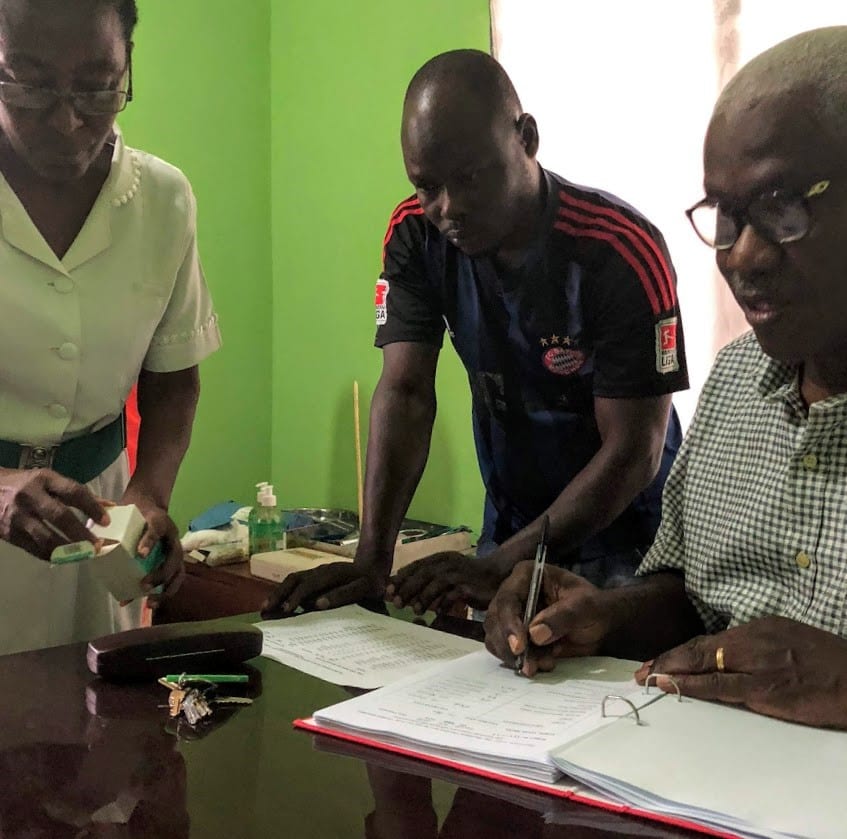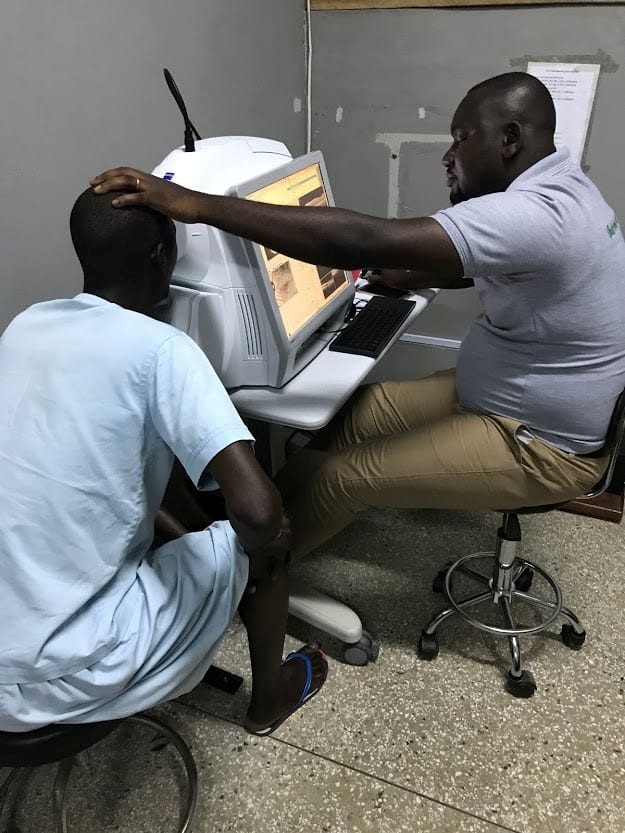
The DOLF project, a collaboration of partners from Africa, Asia, the U.S. and Europe, has secured a new grant of 2.1 Million dollars from the Bill and Melinda Gates Foundation. This grant will fund a clinical trial of a new treatment for onchocerciasis, a disease caused by parasitic worms that is also known as River Blindness. Inflammatory reactions to parasites that live in the skin and eyes cause severe dermatitis and different degrees of visual impairment including blindness.
The planned study, which will be conducted in Eastern Ghana, will test the safety and efficacy of a novel triple drug combination of ivermectin with diethylcarbamazine and albendazole or “IDA”, for treatment of onchocerciasis. Prior studies conducted by DOLF have shown that this combination is safe and effective for treatment of lymphatic filariasis (also known as “Elephantiasis”). This disease is caused by a worm parasite W. bancrofti which is closely related to the worm O. volvulus that causes onchocerciasis.
The newly funded research will build on the foundation of an ongoing study that is being conducted with partners from the University of Health and Allied Sciences in Ghana and collaborating scientists at Case-Western Reserve in Cleveland, OH. That study is assessing the timing and duration of ivermectin’s effects on O. volvulus parasites in the eye and skin.
Both studies will employ state of the art methods to assess the presence of intraocular parasites and disease in persons with onchocerciasis. In particular, they will be the first studies to use ocular coherence tomography (OCT) in patients with onchocerciasis. With OCT and other ocular exams, ophthalmologists will be able to visualize the posterior segment of the eye, count small worm parasites in the eye, and evaluate abnormalities in delicate ocular structures before and after treatment. Dr. Augustine Hong from Washington University in St. Louis and Dr. Michael Gyasi, ophthalmologist and Founder of the St. Thomas Eye Hospital in Accra, Ghana, have collaborated in the planning of the ocular exams and trained several study staff in OCT, slit lamp examination, and fundoscopy imaging. Their careful planning and diligence has born out the successful implementation of these advanced technologies.

The new grant will support a clinical trial to assess the safety and efficacy of IDA for treatment of patients with onchocerciasis who have already received pretreatment with ivermectin in the ongoing study. IDA has been shown to be safe and effective for treatment of lymphatic filariasis in previous DOLF Project studies. (To read more about that research see the blog on IDA for LF). If IDA is more effective than ivermectin alone for treating onchocerciasis, it could be a major breakthrough in the fight against that disease.
However, use of IDA for onchocerciasis is not without risk. That is because diethylcarbamazine (DEC; the “D” in IDA) sometimes causes severe adverse events in persons with heavy infections. DEC rapidly kills parasites in the eyes and inflammatory reactions to dying parasites that can damage delicate ocular structures and cause visual impairment. The rationale for the new study is that pretreatment with ivermectin will clear the parasites from the eyes so that that DEC can be safely used in combination with ivermectin and albendazole.
IDA is currently off-limits for LF elimination programs in many African countries that also have onchocerciasis. A positive outcome from the new combination therapy under study may make it possible for public health officials to use IDA to eliminate LF in these countries. The study will also test whether IDA can kill or permanently sterilize adult O. volvulus worms. A positive result would be a major breakthrough, because there is no safe, short course treatment for that infection at this time.
We are very excited to have the opportunity to conduct this new study, because IDA has the potential to accelerate elimination of two major neglected tropical diseases from Africa.